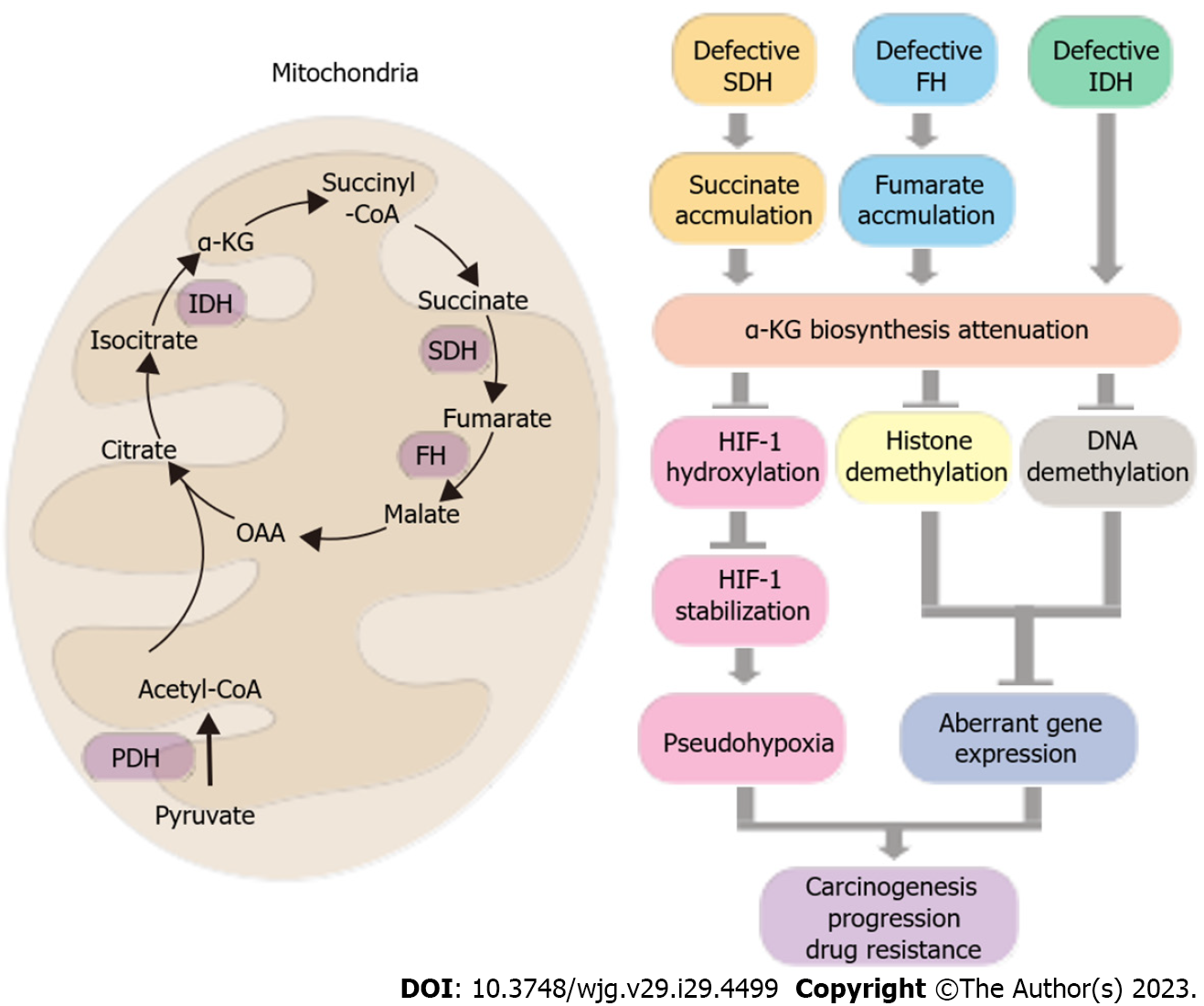Copyright
©The Author(s) 2023.
World J Gastroenterol. Aug 7, 2023; 29(29): 4499-4527
Published online Aug 7, 2023. doi: 10.3748/wjg.v29.i29.4499
Published online Aug 7, 2023. doi: 10.3748/wjg.v29.i29.4499
Figure 3 Tricarboxylic acid cycle dysfunction in cancer and its role in carcinogenesis, progression, and anti-cancer drug resistance.
The left panel depicts the tricarboxylic acid cycle, with succinate dehydrogenase and fumarate hydratase as key regulatory enzymes responsible for the formation of oncometabolites succinate and fumarate. The isocitrate dehydrogenase enzyme synthesizes α-ketoglutarate, which serves as a substrate for tumor suppressor pathways, such as hypoxia-inducible factor 1 hydroxylation for degradation, as well as histone and DNA demethylation. These processes can lead to pseudohypoxia and aberrant gene expression, promoting carcinogenesis, progression, and anti-cancer drug resistance. The right panel provides a summary of these relationships. OAA: Oxaloacetate; SDH: Succinate dehydrogenase; FH: Fumarate hydratase; PDH: Pyruvate dehydrogenase; IDH: Isocitrate dehydrogenase; α-KG: α-ketoglutarate; HIF-1: Hypoxia-inducible factor 1.
- Citation: Chu YD, Chen CW, Lai MW, Lim SN, Lin WR. Bioenergetic alteration in gastrointestinal cancers: The good, the bad and the ugly. World J Gastroenterol 2023; 29(29): 4499-4527
- URL: https://www.wjgnet.com/1007-9327/full/v29/i29/4499.htm
- DOI: https://dx.doi.org/10.3748/wjg.v29.i29.4499









